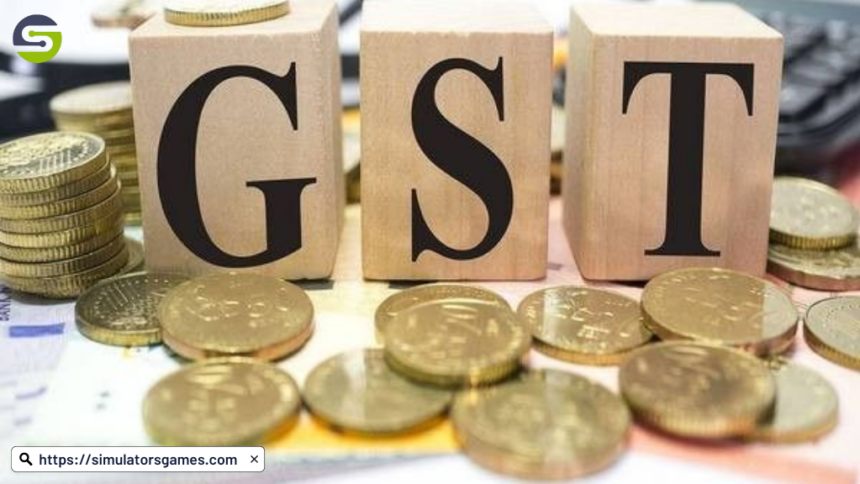The Goods and Services Tax (GST) Council, chaired by the Union Finance Minister and comprising state counterparts, is currently engaged in discussions regarding the taxation of online gaming, casinos, and horse racing activities.
The Group of Ministers (GoM) formed to address these matters has agreed on applying a 28% GST on all three supplies.
However, a unanimous decision has yet to be reached on the taxability of online games, with Goa proposing an 18% tax on platform fees.
The GoM, led by Meghalaya Chief Minister Conrad Sangma and consisting of members from eight states, including West Bengal, Uttar Pradesh, Goa, Tamil Nadu, Telangana, Gujarat, and Maharashtra, has been deliberating on multiple aspects.
These include the taxation rate, whether tax should be levied on gross gaming revenue (GGR) or platform fees, and whether these activities fall under the category of actionable claims of betting and gambling.
Among the participating states, West Bengal and Uttar Pradesh support the imposition of a 28% GST on all three supplies based on the full face value of the bets placed.
Gujarat, however, advocates for applying the 28% tax on platform fees. Meghalaya suggests the tax should be levied on GGR, platform fees, or commissions charged by casinos, online gaming platforms, and horse racing entities.
Additionally, Meghalaya proposes the establishment of an “Escrow Account” to facilitate the pooling of prize money for easier tax administration.
While Goa suggests a 28% tax on the gross gaming revenue of casinos, it recommends an 18% GST on platform fees or service charges imposed by platform operators.
Furthermore, Goa suggests treating contributions to the prize pool as supplies not liable for GST levy.
Tamil Nadu and Telangana suggest that if the GST Council determines that these activities do not fall under the category of actionable claims of betting and gambling, a 28% tax should be levied on GGR.
While recommending a 28% rate for all three supplies, Maharashtra asserts that there should be no differentiation in taxation based on whether the activities involve games of skill or chance.
The state proposes that the valuation rules reflect this perspective and advocates for a suitable reduction to determine the taxable value of the actionable claim.
Given the varying opinions among the GoM members, the final decision on the tax rate and valuation has been left to the GST Council.
It should be noted that the GoM had previously submitted its first report to the GST Council in June 2022, suggesting a 28% GST on the full value of bets placed.
However, during the 47th GST Council meeting in June last year, Goa expressed reservations about the report, prompting the Council to request a reevaluation of the issues.
Subsequently, the GoM conducted further meetings to revisit the matter, including field visits and interactions with industry stakeholders.
The discussions within the GST Council regarding the taxation of online gaming, casinos, and horse racing highlight the complex nature of regulating these activities.
The diverse opinions among the participating states underscore the need for a comprehensive and balanced approach to ensure a fair and transparent tax framework.
As the deliberations continue, stakeholders in the gaming and gambling sectors await the final decision of the GST Council, which will play a crucial role in determining the taxation regime for these activities in India.
Excerpt:
The Goods and Services Tax (GST) Council is engaged in extensive discussions regarding the taxation of online gaming, casinos, and horse racing activities.
The Group of Ministers (GoM) has reached a broad consensus on applying a 28% GST on all supplies, but disagreements remain on the taxability of online games.
The deliberations involve considerations of the potential taxation rate, whether tax should be levied on gross gaming revenue or platform fees, and the classification of these activities under actionable claims of betting and gambling.
Participating states have expressed varying views, with West Bengal and Uttar Pradesh advocating for a 28% GST based on the full face value of bets, Gujarat suggesting a tax on platform fees, and Meghalaya proposing taxation on GGR or platform fees.
The discussions also revolve around establishing an “Escrow Account” and treating prize pool contributions.
Tamil Nadu, Telangana, and Maharashtra have offered their perspectives as well. Ultimately, the GST Council will determine the final taxation rate and valuation, taking into account the diverse opinions of the GoM members.
These ongoing discussions reflect the complexities in regulating online gaming, casinos, and horse racing, and stakeholders eagerly anticipate the GST Council’s decision, which will shape the taxation framework for these activities in India.
Read More: Player Sentenced for Swatting Ubisoft Office: A Serious Crime with Consequences






